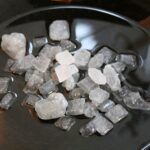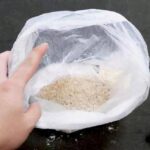If you’re looking to keep your blood sugar levels in check, renowned American nutritionist Sarah Schlichter advises against consuming any type of alcoholic beverage as your first drink of choice. She explains that alcohol can interfere with hormones and reduce insulin activity, leading to blood sugar instability. Moreover, distilled spirits and mixed drinks tend to be high in carbohydrates, exacerbating the situation.
For those taking medication to manage their blood sugar, Schlichter emphasizes that alcohol can interfere with the effectiveness of these drugs. She recommends, “To effectively manage blood sugar levels, individuals should refrain from drinking alcohol on an empty stomach or when blood sugar levels are already low.”
In addition to curbing alcohol intake, nutritionist Kiran Campbell warns against the consumption of sugary sodas, sweetened teas, energy drinks, sports drinks, sweetened coffee, and fruit juices, as these can cause a rapid spike in blood sugar levels. Therefore, if you aim to maintain stable blood sugar, it’s best to minimize or avoid these beverages altogether.

Two Types of Drinks Endorsed by Experts to Help Lower Blood Sugar
On the other hand, there are two types of beverages that experts trust to help manage blood sugar levels.
Water
Although it may seem obvious, many people still don’t drink enough water, which nutritionist Kiran Campbell emphasizes as the most crucial beverage for blood sugar control. “Water doesn’t raise or lower blood sugar, but it can prevent blood sugar spikes by regulating hormones that affect glucose stability and urine production,” Campbell explains.
This is essential because while water doesn’t directly lower blood sugar, dehydration can lead to increased blood sugar levels due to the concentration of blood.

Water Doesn’t Raise or Lower Blood Sugar, But It Plays a Crucial Role in Preventing Spikes
Campbell also stresses that the body cannot function optimally when dehydrated. “So, water should be the primary choice for everyone, regardless of their blood sugar levels or other health conditions,” she advises.
Unsweetened Green Tea
According to nutritionist Kiran Campbell, one beverage that can aid in lowering blood sugar is unsweetened green tea. Campbell cites a scientific study indicating that individuals who drank green tea exhibited improved glucose metabolism—the process of breaking down carbohydrates into simple sugars, converting them into glucose, and providing nourishment to cells—compared to those who drank decaffeinated coffee, black tea, or oolong tea.
Campbell attributes this effect to the presence of a specific polyphenol called epigallocatechin gallate (EGCG) in green tea. Scientific studies have established a connection between EGCG and lower blood sugar levels, suggesting that consuming unsweetened green tea may help reduce the risk of type 2 diabetes.

Unsweetened Green Tea: A Beverage That May Help Lower Blood Sugar Levels
However, Campbell emphasizes that managing blood sugar levels requires an overall healthy diet. No single food or drink can solely maintain low blood sugar levels. Yet, if you’re seeking a healthy alternative to sugary sodas, energy drinks, or sweetened teas to help manage your blood sugar, unsweetened green tea is an excellent choice. Of course, water remains the number one option, regardless of your dietary habits.
The Ultimate Guide to Slashing Your Energy Bills: 3 Fridge Essentials
The efficient use of refrigerators to save energy is a topic of interest to many. With rising energy costs and a growing awareness of environmental sustainability, it’s no wonder that homeowners are seeking ways to optimize their refrigerator usage. The key lies in understanding the intricacies of these appliances and employing strategic practices to reduce energy consumption without compromising on functionality. This introduction sets the tone for an informative guide that promises to empower readers with practical tips and insights for achieving energy efficiency in their refrigerator usage.





































